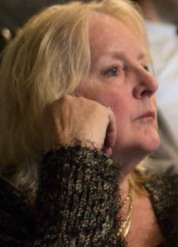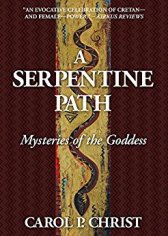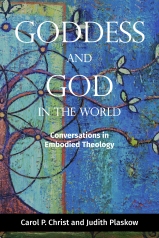 Yesterday morning when I learned about the Open Letter to Attorney General Sessions: Join Us In Selma On the Right Side of History, I paused Joy Reid’s interview with William Barber II in order to search for the petition site. The letter’s authors invited the Attorney General to join them in Selma to commemorate the 52nd anniversary of “Bloody Sunday” when peaceful marchers demanding the right to vote were attacked with billy clubs and tear gas. The Letter also asks the Attorney General, who was born in Selma, to join them in a non-partisan commitment to ensure the right to vote for all Americans. The letter calls upon the Justice Department to restore the protections against voter suppression enshrined in the Voting Rights Act.
Yesterday morning when I learned about the Open Letter to Attorney General Sessions: Join Us In Selma On the Right Side of History, I paused Joy Reid’s interview with William Barber II in order to search for the petition site. The letter’s authors invited the Attorney General to join them in Selma to commemorate the 52nd anniversary of “Bloody Sunday” when peaceful marchers demanding the right to vote were attacked with billy clubs and tear gas. The Letter also asks the Attorney General, who was born in Selma, to join them in a non-partisan commitment to ensure the right to vote for all Americans. The letter calls upon the Justice Department to restore the protections against voter suppression enshrined in the Voting Rights Act.
I was pleased to sign the Open Letter because I have been thinking about how those who came together in the Women’s March and other marches can channel their energy into registering voters, helping them get the identification required by “voter suppression laws” enacted with the purpose of disenfranchising voters of color and elderly voters in nearly half of all US states. I believe it is imperative to focus a part of our energy on helping people to get the necessary ID’s while at the same time working to throw out every single rascal who voted for these laws. We must take back the state legislatures that have the power to enact voting laws. And we must do what we can to make sure that everyone who wants to vote is able to vote.
While I was adding my name to the petition, I was asked to check if I am a faith leader. I immediately checked the box. I was then asked my “clergy type.” The options were: Bishop, Brother, Cantor, Deacon, Elder, Father, Imam, Minister, Mother, Pastor, Priest, Rabbi, Sister, Other. Despite the fact that its autors left out Pope and Cardinal, the list pretty much covered the territory for traditional Catholicism, Protestantism, Judaism, and Islam. Not finding feminist theologian, Goddess thealogian, ritual leader, or priestess among the options, I was forced to check “Other,” while wondering what—if anything–the authors of the petition thought might be included under that category.
This brought me back to the American Academy of Religion meetings where we engaged in conversations about what we as professors of religion could do to resist the Presidency of Donald Trump. Many of the speakers invoked Biblical metaphors: I particularly remember one man who spoke of this time as a moment when “prophetic voices” must to be heard.
While those words were applauded by many, they made my skin crawl. When I mentioned my discomfort to a feminist friend, she responded that “everyone understands” the prophetic voice to be a voice of self-criticism. I was taken aback. I had expected her to respond that the prophetic voice is a voice of judgment against those who forget the poor and the widow. This is what many feminists—both Jewish and Christian–have found inspiring in the words of the prophets.
Yes, the prophetic voices in the Bible express self-criticism as well as judgment when they castigate their own people for failing to care for the poor and the widow. But to mention only this is to read selectively. The prophet Jeremiah cries out:
[5b] “For if you truly amend your ways and your doings, if you truly execute justice one with another,
[6] if you do not oppress the alien, the fatherless or the widow, or shed innocent blood in this place, and if you do not go after other gods to your own hurt,
[7] then I will let you dwell in this place, in the land that I gave of old to your fathers for ever.” (all quotes from RSV, Jeremiah 7)
Jeremiah’s warning not to oppress the alien, the fatherless or the widow, and not to shed innocent blood have a contemporary resonance. The aliens of our time are the immigrants being cast out of America; the fatherless and the widow will surely suffer if the Affordable Care Act and other safety-net laws are overturned; and innocent blood is being shed by our police forces and armies.
But to understand the prophets only in this way is to skip over important aspects of their shared worldview. What does Jeremiah mean when he urges the people “not to go after other gods to your own hurt”? He explains:
[17] Do you not see what they are doing in the cities of Judah and in the streets of Jerusalem?
[18] The children gather wood, the fathers kindle fire, and the women knead dough, to make cakes for the [Q]ueen of [H]eaven; and they pour out drink offerings to other [G]ods, to provoke me to anger.
Jeremiah is himself kindling the fire of religious intolerance. Here a “prophetic voice” asserts that lighting a fire in order to bake cakes to the Queen of Heaven provokes the anger of God. Is this the kind of a voice we need in our time? Why does the simple act of baking cakes to offer to a Deity ignite the prophet’s ire? And this is not even to mention that the prophets have a particular animus against the Goddess and Her worshippers.
What does the “prophetic voice” say to those of us who have experienced the rebirth of the Goddess in our time? It tells us in no uncertain terms that we are the ones who are evil, that we are responsible for the sins in our the world, that we deserve to be punished. In Jeremiah’s vision, those who bake cakes for the Queen of Heaven are as responsible for “the wrath of God” as those who oppress the alien, ignore the needs of the fatherless and the widow, and shed innocent blood. Really?
Another thing glossed over by liberal and progressive “faith leaders” who call for a prophetic voice in our time is the violence inherent in the prophetic vision.
[20] “Therefore thus says the Lord GOD: Behold, my anger and my wrath will be poured out on this place, upon man and beast, upon the trees of the field and the fruit of the ground; it will burn and not be quenched.”
The God of the prophets punishes violently and indiscriminately. Not only those who sin in His eyes, but also the beasts and the trees of the field will be burned in an unending fire.
Maybe my unease with those who speak of faith leaders without including me and who invoke the prophetic voice rather than criticizing it, is not a small thing after all. Can faith leaders lead us to justice and peace in our time if they fail to acknowledge and respond to the feminist critics of their patriarchal faith traditions?
***

 Read more in Carol’s new book written with Judith Plaskow, Goddess and God in the World: Conversations in Embodied Theology. Be among the first to order A Serpentine Path, Carol’s moving memoir.
Read more in Carol’s new book written with Judith Plaskow, Goddess and God in the World: Conversations in Embodied Theology. Be among the first to order A Serpentine Path, Carol’s moving memoir.
Carol wrote the first Goddess feminist theology, Rebirth of the Goddess and with Judith Plaskow co-edited the path-breaking Womanspirit Rising and Weaving the Visions.
Join the spring Goddess Pilgrimage to Crete now. Save $200.


What a great piece, Carol. It explains so much. And suggests a plan of action as well. Thank you.
LikeLike
Thanks, Carol. I have been having this discussion with feminist biblical scholars as well, around the prophet Elijah. Although he supported poor widows and children, his theology was very narrow and rigid, and violently opposed to multi-culturalism. He objected to the introduction of a temple not dedicated to his god, and challenged the priests of Ba’al to a contest in which he set the rules, and when, not surprisingly, he won, he personally slaughtered them all. It’s less clear what happened to the priests of Asherah, but at best, they were forced out of the public sphere.
LikeLike
I don’t find anything praiseworthy in the OT prophets. They’re a bunch of nasty old men who seem to have totally neglected the widows and orphans and fulminated against anyone who didn’t believe precisely what they believed: that a misogynistic god was aiming to punish his own people. I agree with you about the “prophetic voice” of Jeremiah, which was, like, anger personified.
It was while I was studying the Bible and we’d turned to the prophets that the Goddess spoke to me and I turned to Her. I began studying works about Her and learned that, so to speak, the Goddess is the grandmother of God, i.e., people were worshiping her long before the myths of the Garden of Eden and the Exodus were spoken or written down.
As usual, brava! Thanks for your thinking and your writing.
LikeLiked by 1 person
I’m curious, Barbara, how did the Goddess speak to you? Did she speak out loud to you?
LikeLike
Great post, Carol. I’ve been objecting to the term “prophetic voice” since teaching the UU feminist curriculum “Cakes for the Queen of Heaven.” I even recorded my own version of that biblical story as a song entitled “Baking Cakes for the Queen of Heaven.” You can hear it at: https://youtu.be/m7Mv5bxeDEo. Enjoy!
LikeLiked by 1 person
I have never understood how Protestant and Catholic feminist liberation theologians can applaud the prophetic voice and Jesus as standing in their line, without actually reading everything the prophets say.
LikeLiked by 2 people
Great essay, Carol. I so agree with you regarding the O.T. prophets–their myopia, their xenophobia, their “know it all” kind of ways. Love how you call out the injustice of the prophets. Is it possible to broaden out the phrase “prophetic voices,” not even grounding oneself within the stories and worldviews of Abrahamic traditions? When I think of a prophetic voice nowadays, I think of ways of seeing, being, and doing that are innovative and fresh as well as ways that most people do not see and often refuse to consider. I like to think of us as human beings in process attempting to figure out and enact justice.
LikeLike
Right on, Esther regarding the O.T. prophets—their myopia indeed.
LikeLike
Sarah — Please email me. I’m coming to NYC. My email is NancyV-S@tds.net.
LikeLike
“Can faith leaders lead us to justice and peace in our time if they fail to acknowledge and respond to the feminist critics of their patriarchal faith traditions?”
They most certainly cannot.
LikeLike
Nice article
LikeLike